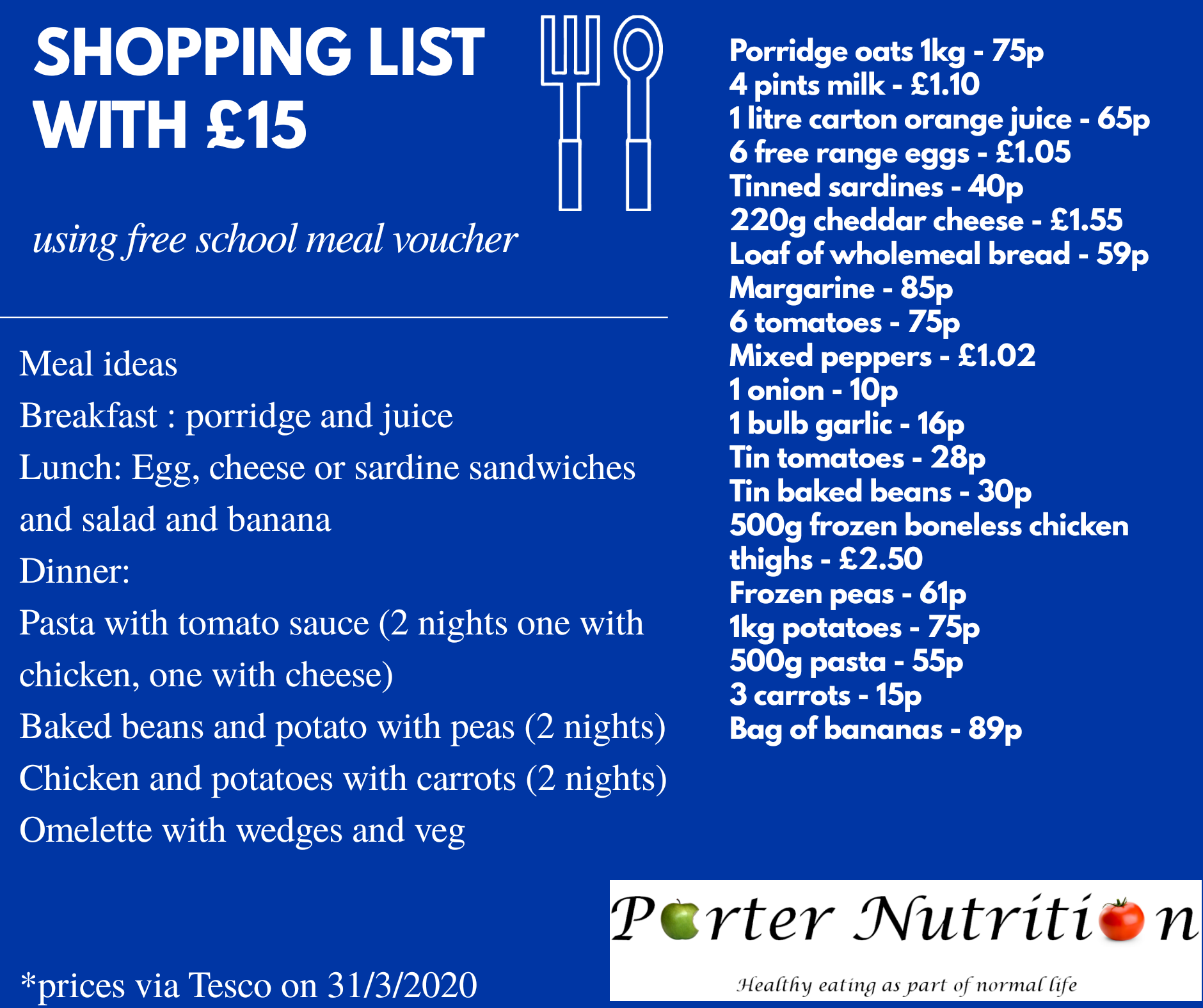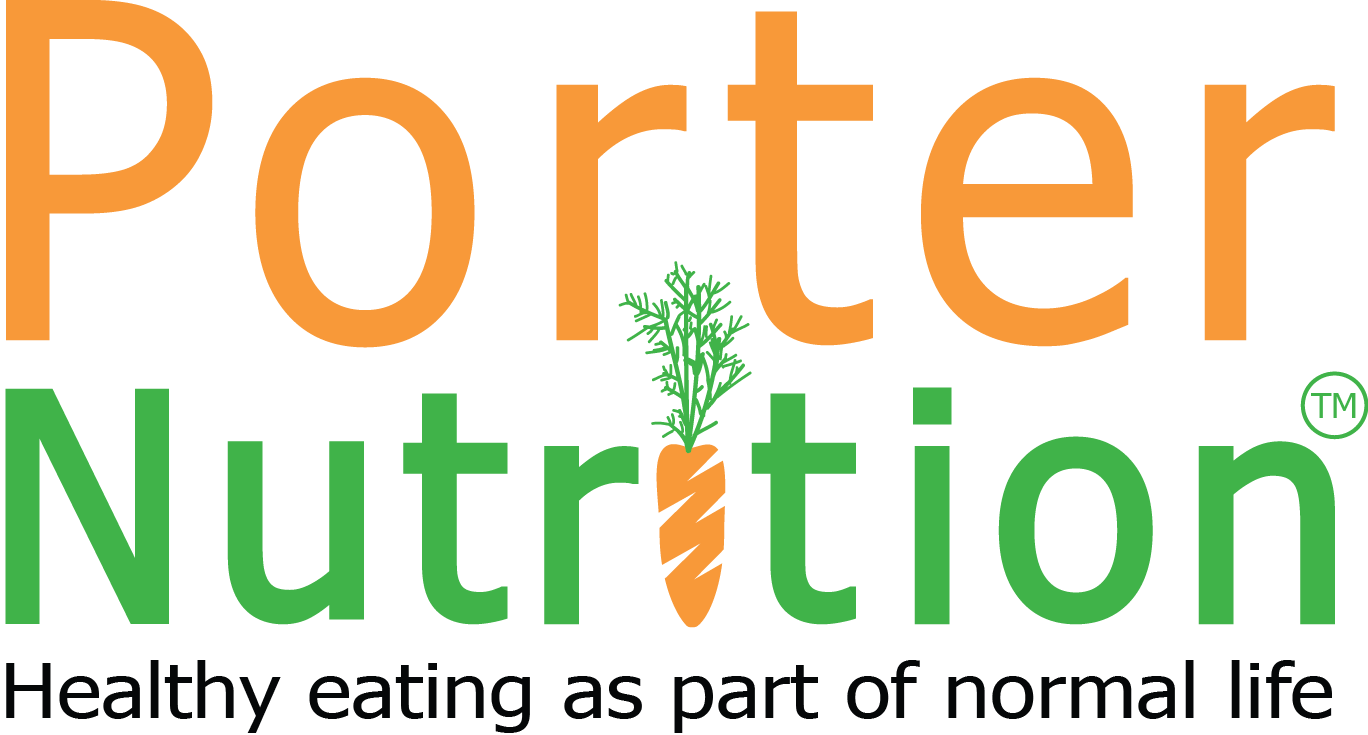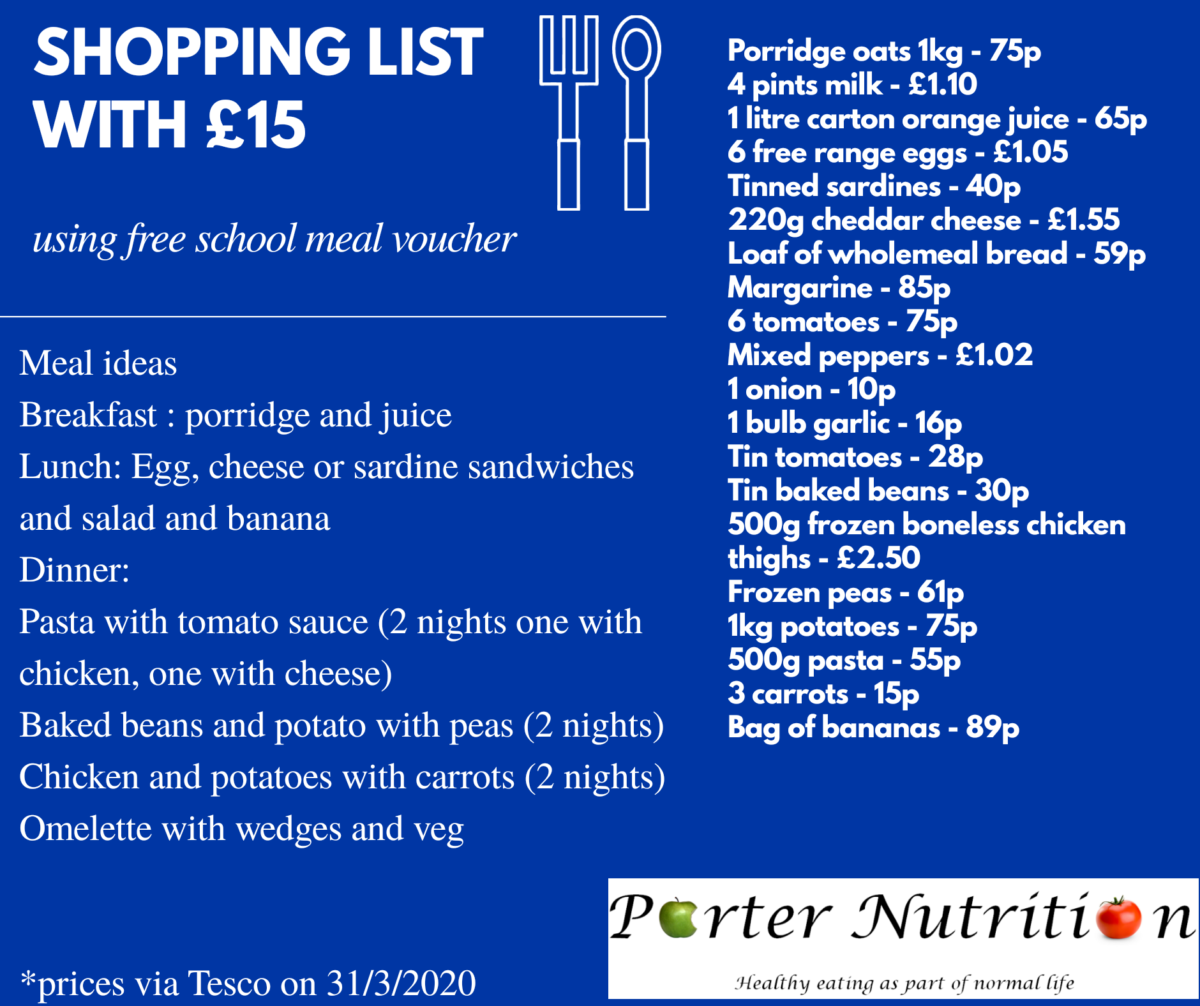Healthy food should not be just for the wealthy. It should not just be for those who have lots of time to cook. Yet, we know that healthy food costs money. It doesn’t have to be more expensive than highly processed food however whichever food we eat, we need money to buy it.
The current economic situation has highlighted some issues which have been around but largely been masked for some time. We know that use of food banks is high. We know that for many of the children who get free school meals that that is their only meal of the day (and they go hungry in the holidays). However the closure of schools for an extended period and the loss of so many jobs (or reduced income for those on already low incomes) as pushed even more people into food poverty.
A few weeks ago I created this infograhic. It was designed to give some ideas about how the £15 voucher, which had been promised to families on free school meals, could be used. I was criticised for some of my choices on what I put, so I wanted to explain my logic.

The voucher was just to cover lunch
True, but we know many children who get lunch don’t get other meals, so I wanted to use the opportunity to give them 3 meals (which they deserve). In addition, fuel poverty is a big problem for many families, being able to provide 3 meals instead of just 1 may also free up some income from other sources to pay for fuel – especially as lots of schooling is now online, more hours at home means more heating and lighting costs, and more meals at home means more gas/electric for cooking. To help with fuel further, I repeated some meals to reduce energy required.
The ingredients I picked wouldn’t be eaten by all children
One size can never fit all. These were suggestions. I made sure not to pick the cheapest quality foods in order to make sure that if parents or carers chose other foods eg other veg or other proteins, that they could still come under the £15 total
You can get some of those ingredients cheaper elsewhere
Very true however too often I have seen other advice suggest the cheapest options, from either a range of supermarkets or the most basic ranges. Not everyone has access to cheap supermarkets – especially without using public transport. At the moment, we don’t want to encourage people to shop around – it will increase their risk of catching the virus. We also don’t want to assume people have the time to go to multiple shops. I use some value ranges of food in my house but not all are of a standard I would want, so why should I suggest others have them
The proteins I chose were not cheap
There has been a lot in the research about highly processed foods and health. I want the best for these children so pieces of chicken, eggs, and oily fish are far better than recommending chicken nuggets and ham slices. Whilst I know some children won’t eat these, I wouldn’t be doing my job well if I suggested they had poor quality which may cause harm to health later down the line.
The portions weren’t big enough for teenagers
I tried where possible to buy larger portions than smaller children would eat. For example the amount of porridge pasta and potatoes were more than would be needed for a primary age child. The portions of vegetables are based on the recommended 80g portions (5 of these a day). The protein portions again were larger than a smaller child would eat. If you had a household with more than 1 child, or some budget for the adults in the household, you could use this menu to support the whole household and then buy some other ingredients alongside it.
The sad thing remains, that we even need something like this in the first place. My hope is that once this is all over, we will look again at how we treat food poverty. That we will look at the root causes of food bank use and that we, a wealthy nation, will feed all our children well.

